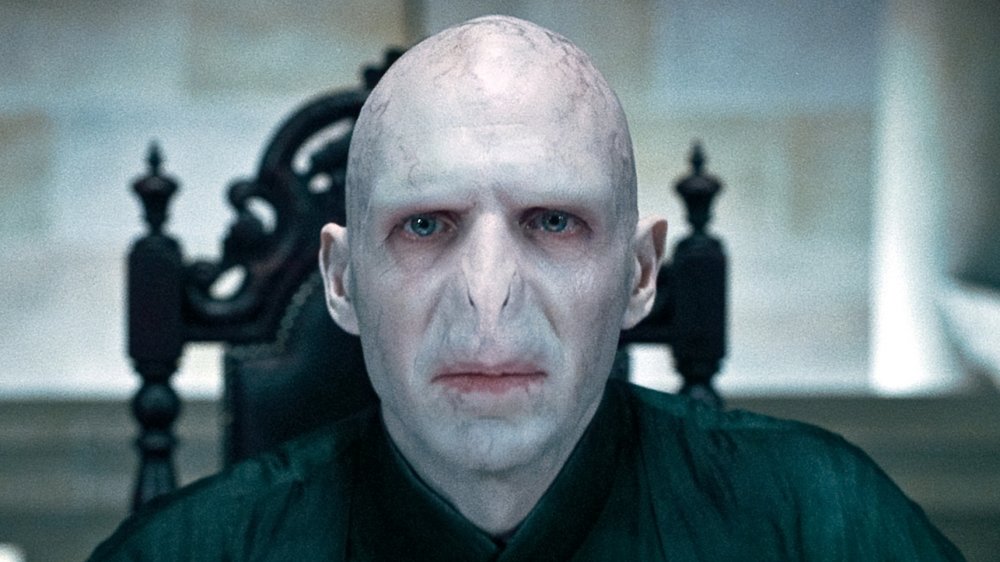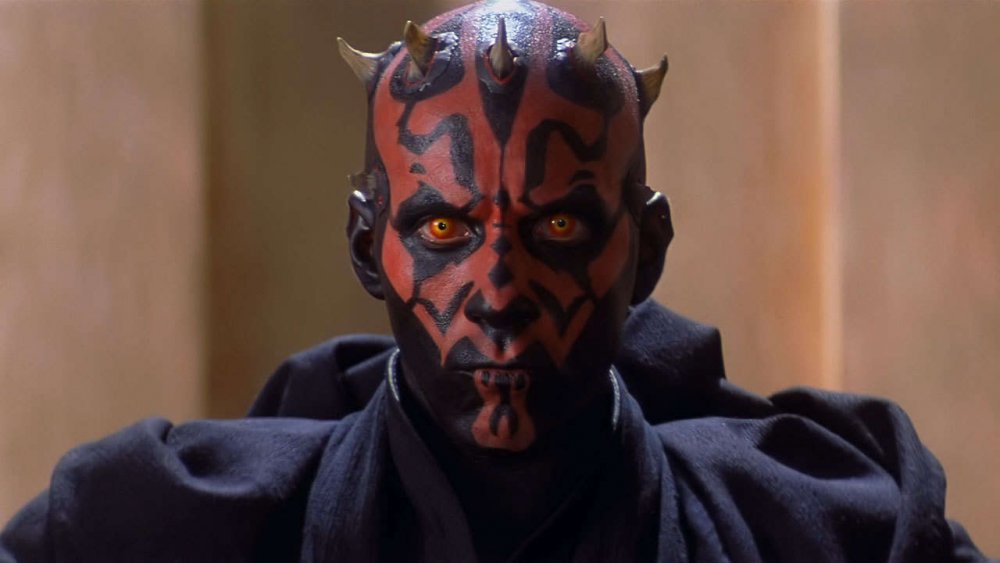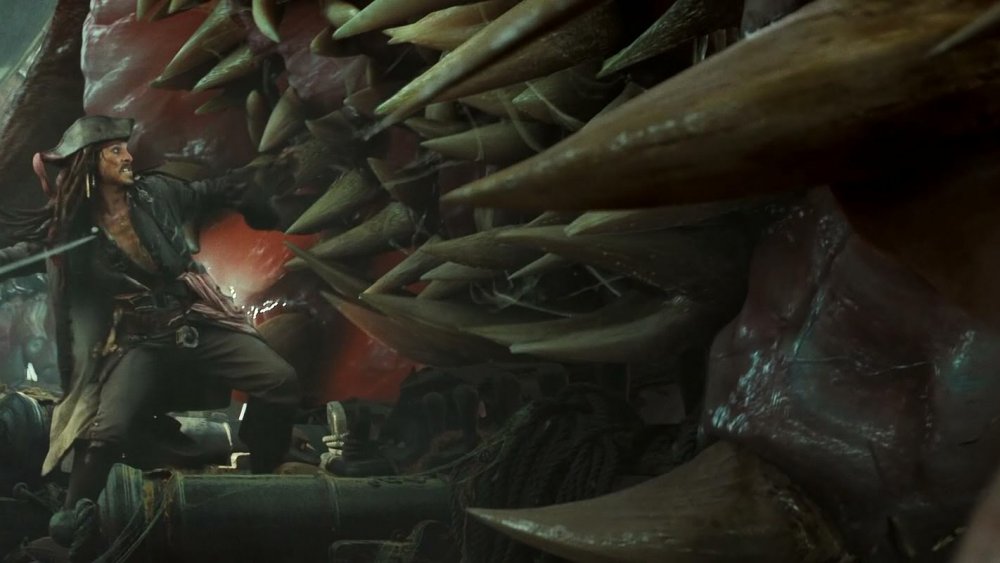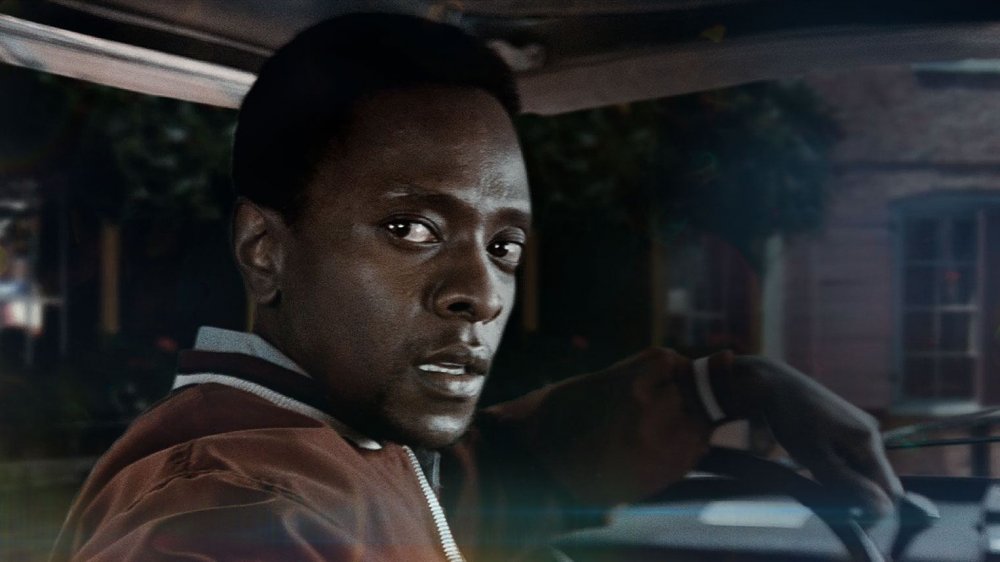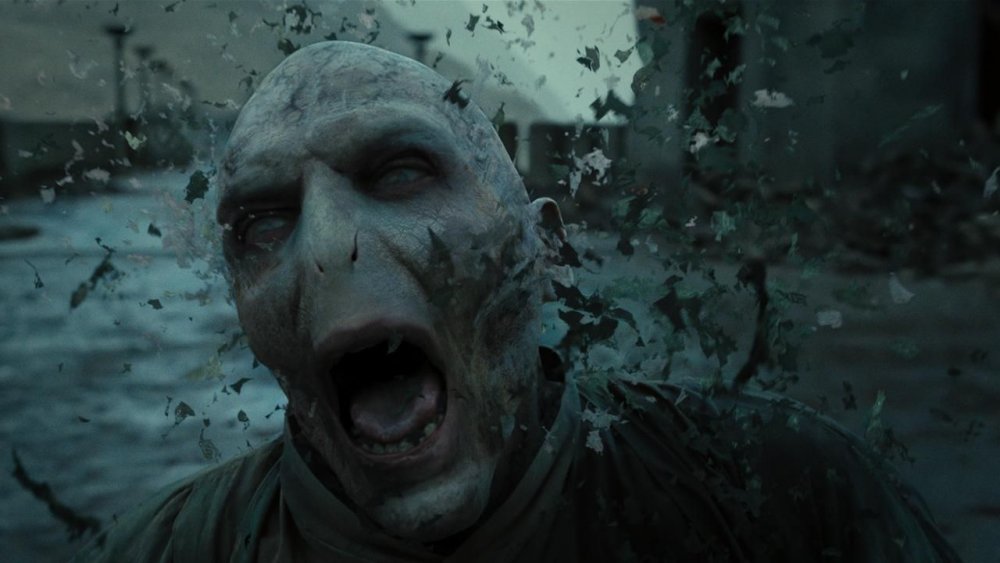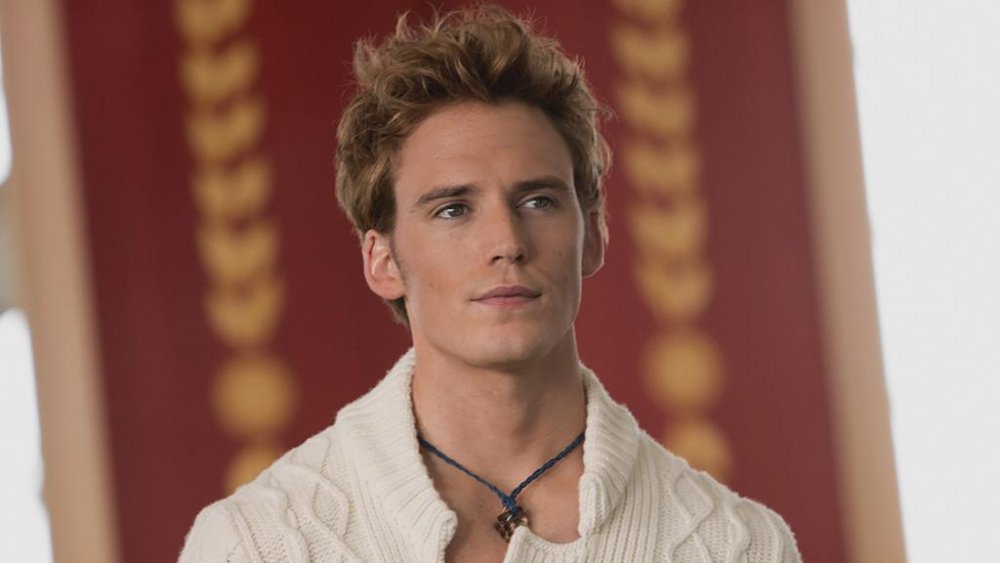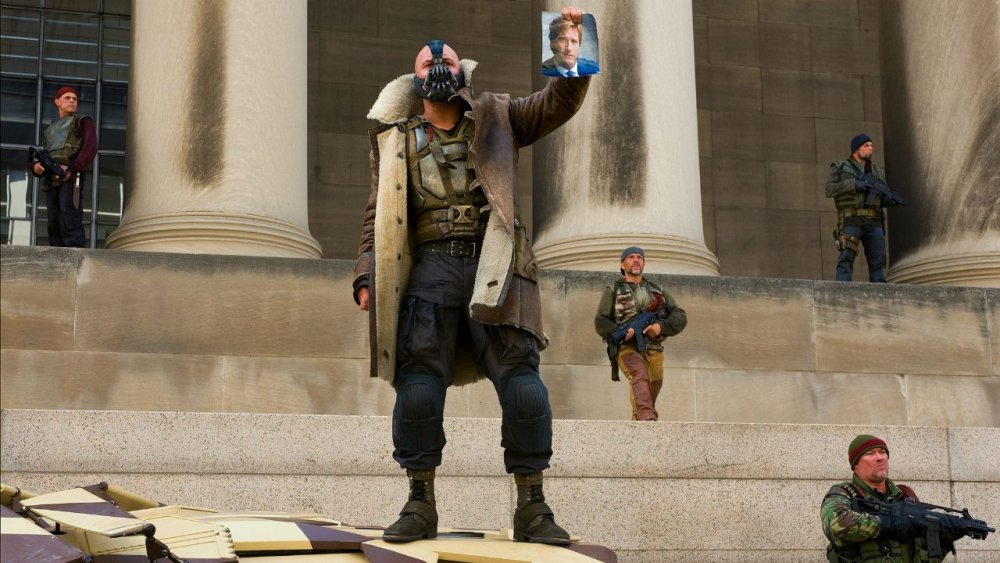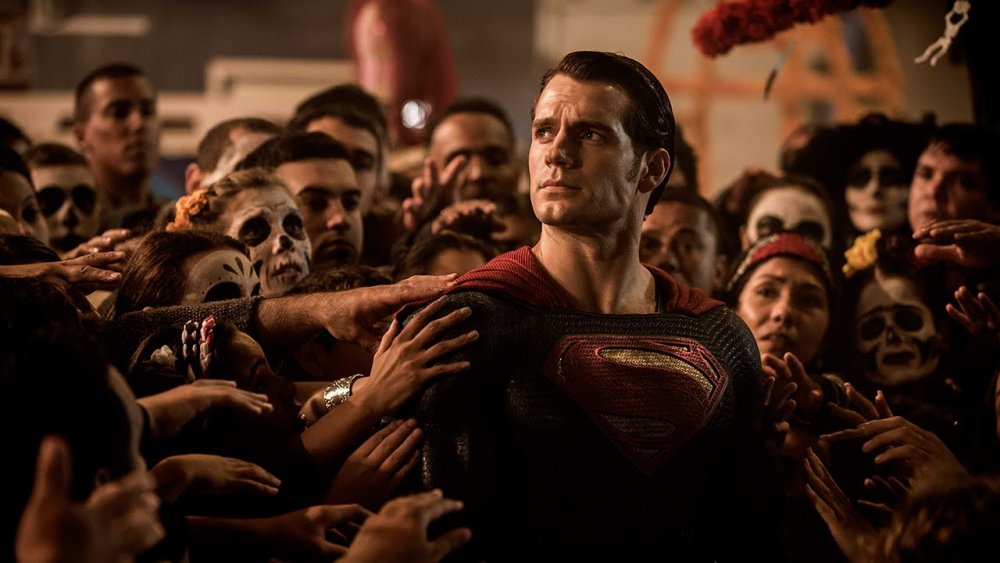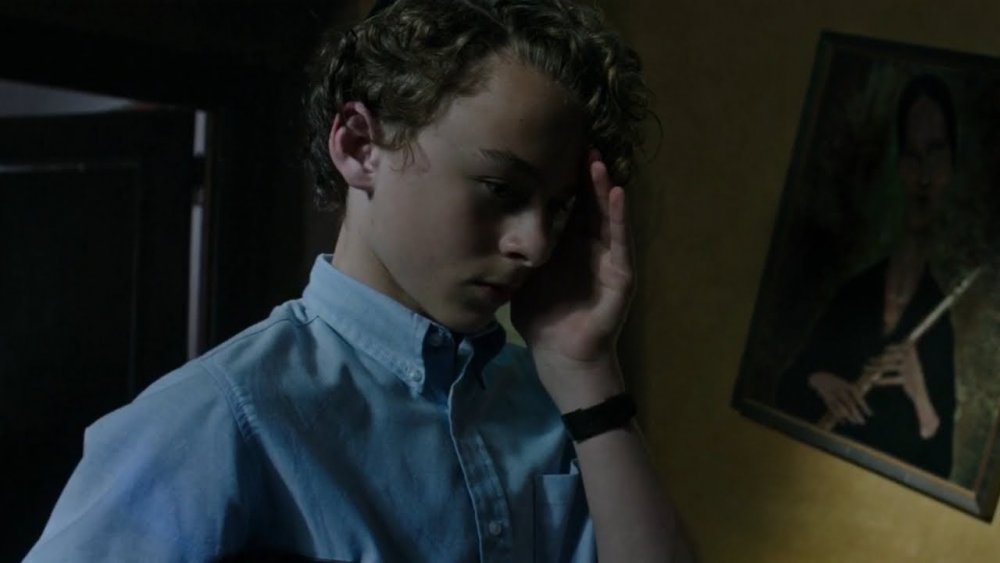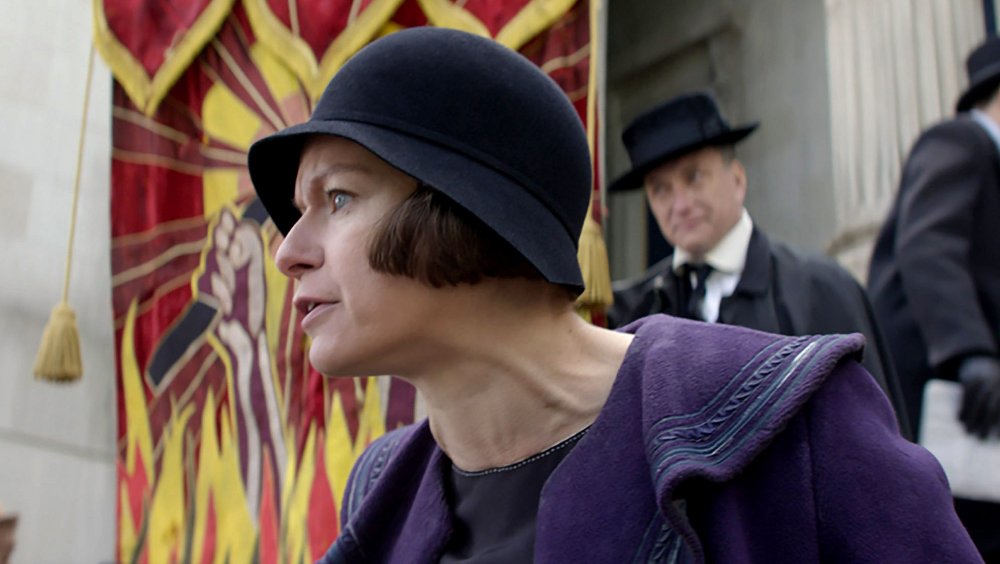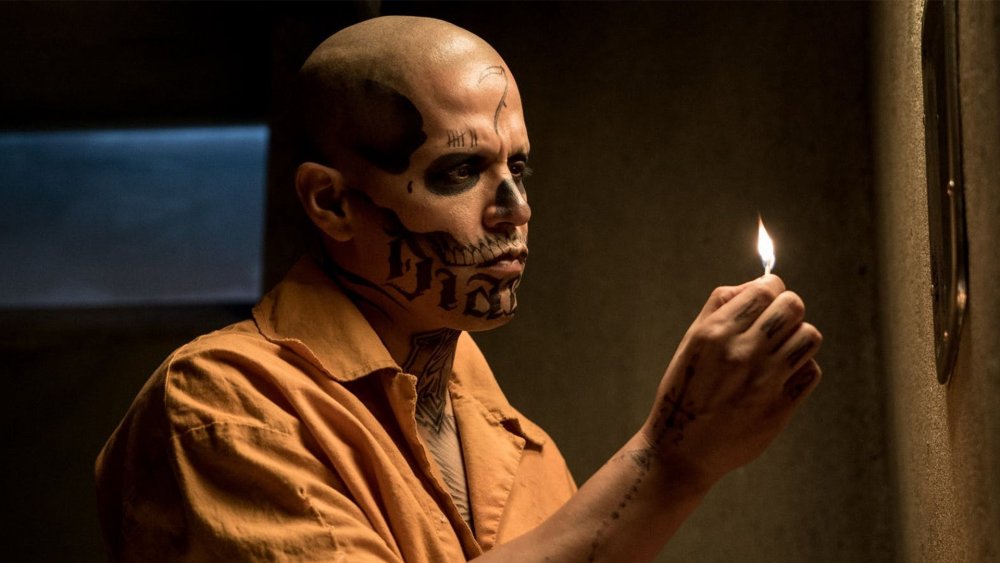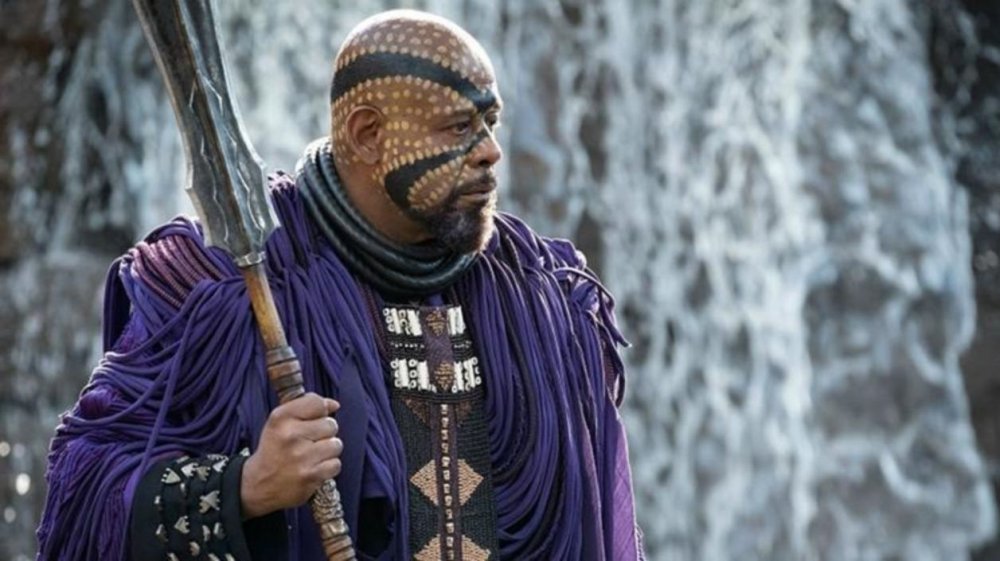Movie Characters Who Deserved More Significant Deaths
Is there anything more cinematic than the perfect movie death? Whether it's the richly deserved demise of a villain, the tragic loss of a love interest, or the sudden, shocking murder no one saw coming, the silver screen was made for portraying the end of all sorts of lives. Movie deaths involve every element of the art form at their most intense and heightened states. Strings swell. Shadows slice across faces. Unforgettable lines are uttered. You might laugh, you might cry, but when the moment comes, if all is working as it should, you end up with a scene you're unlikely to ever forget.
But that, of course, is the best case scenario. More common by far are lackluster, middling, good-enough deaths, and below them, the outright stinkers. Perhaps the worst sort are the deaths that treat promising or centrally important characters like bit players, and oh, how frustratingly common are those particularly disappointing endings. Here are some of the most egregious cases of characters who deserved more significant deaths and how their movies failed them, from the limpest battle scenes to the most mundane ends for fascinating foes.
(As you might expect, there are major spoilers ahead.)
Darth Maul's death was incredibly disappointing
Aesthetically, Darth Maul is one of the greatest successes of the Star Wars franchise. He's got a crown of horns, facial tattoos, and a double-bladed lightsaber, which, if you don't recall, was a very new thing back in the days of The Phantom Menace. To look at him is to return to your popcorn-munching childhood, in which fannish gripes are burned away in the white-hot blaze of oh my god, look at that guy, he's so cool! Years later, that impression remains intact ... so long as you block out the memory of just how disappointingly he died.
If you need a refresher, let us oblige you. Obi-Wan Kenobi cut him in half, and he fell into a pit. Yes, okay, the fight was set to one of the most impressive songs of the prequels' soundtrack, and sure, Obi-Wan had just witnessed Maul murder Qui-Gon Jinn and was thus empowered by rage. But the sheer fact remains that Darth Maul — he of the devastatingly cool promotional photos and unprecedented weaponry — died like a schmuck in the trilogy's first movie. Though other corners of the Star Wars universe, from the comics to The Clone Wars, would go on to resurrect him and grant him the story he always deserved, the events of The Phantom Menace remain as disappointing as they've ever been.
The Kraken should've had a more significant send-off
Pirates of the Caribbean: Dead Man's Chest, the second film in the Pirates franchise, makes it clear from the very first scene that new and ambitious story elements are now in play — most prominently Davy Jones and the monstrous Kraken he commands. Fear of this legendary beast is woven through the entire movie, culminating in the scene where Jack Sparrow, sword in hand, stares down the monster's toothy gullet.
Dead Man's Chest was succeeded by At World's End, which finds Jack in the afterlife, albeit one he's rescued from. But what of the Kraken? A passing glance at its corpse, left to rot on a minor island, reveals the truth — Davy Jones was forced to murder the creature at the fiendish Lord Cutler Beckett's command. And that's that for the great beast, specter of the second movie, reduced to a seagull buffet. Sure, other baddies had moved into the fore by the time the third film rolled around, and it makes sense that the Kraken had to die to make room. But still, we couldn't even get a final shot of it in full, monstrous action? Fans of fantastical computer animation had much to enjoy from the rest of At World's End, but a proper farewell to the second film's looming terror would not have gone amiss.
Darwin's death in X-Men: First Class doesn't even make sense
The whole fact of Darwin's death in X-Men: First Class is itself up for debate. After all, the guy's superpower, the ability to instantly adapt his physiology, is literally not dying. That's the person the X-Men team decided to sacrifice upon the altar of "look how dangerous our bad guys are"? Really? They couldn't have dragged someone like Goldballs or Beak out of the X-vaults to serve that purpose?
But sure, let's accept the fact that Darwin dies, regardless of how flimsy its basis might be. Even if one does so, there remains the sheer lameness of how he died. Sebastian Shaw, leader of the Hellfire Club, attacks the facility in which the nascent X-Men are being held. He absorbs one of Alex Summers' energy blasts, then forces it down Darwin's throat. Darwin tries to adapt in response to the blast, but he's unable to and is incinerated from the inside. Sure, okay, one can be churlish and argue that the upper limits of Darwin's powers hadn't been defined. Perhaps this was simply too much energy to adapt to. But again, why not just choose another character to kill off with a less problematic powerset? And if it had to be Darwin, could the man with the spectacularly flexible powers truly not have done more than just turn briefly metallic before crumbling to ash? Apparently not. At least he lives on in the comics.
The Harry Potter series got Voldemort's death all wrong
Voldemort's death doesn't seem insignificant at first glance. It's preceded by eight blockbuster movies, happens at the apex of a dramatic battle in the ruins of Hogwarts, and features unforgettable computer imaging, in which he literally flakes away into nothing but ash on the wind. It's a powerful moment. Voldemort's evil is so thoroughly vanquished by our stalwart hero that there's literally no trace of him left.
Seems anything but insignificant, right? Actually, upon comparison with Voldemort's death in the books, one realizes that his cinematic defeat is significant in all the wrong ways. On the page, Voldemort dies with a "mundane finality." He's hit by the killing curse and falls over dead, like any other mortal man might've done. This was, of course, his worst fear — the dude named his followers the Death Eaters — and as such, it serves as his most fitting punishment. Voldemort's utterly ordinary death demonstrates the end of his reign of terror and also his ideals. None of his cruelty, power, or vicious philosophizing mattered to death, his first and final enemy. In light of this, his death in the movies is insignificant in every way that matters, choosing style over the actual substance of the moment. He dies in both versions, but only one serves him true and brutal justice.
FInnick Odair's death scene was way too sudden
Finnick Odair was one of The Hungers Games' easiest characters to love. He was, of course, gorgeous, and equipped with a roguish sense of humor that garnered him fans by the thousands. Then readers learned of his tragic past and present — pimped out by the Capitol and separated from Annie Cresta, his true love — and, well, Finnick's popularity was sealed. As he grew to trust and respect Katniss, work towards the liberation of Panem, and eventually marry Annie, his place in fans' hearts only grew, to the point that his death (in a series that loved to shock and upset) became a practical certainty.
And yeah, to the surprise of very few, Finnick does indeed die in the final assault on the Capitol. After all, few characters so roundly liked are spared in this series, from Katniss' sister Primrose to her stylist, the courageous Cinna. But unlike them, Finnick dies like a background extra. As he, Katniss, Gale, and other rebels make their bloody way to Snow's mansion, Finnick is attacked in the sewers by horrific reptilian monsters, genetically engineered by the Capitol. The last we see of him is a roiling foam of water, though the books inform us that his head is bitten off. Katniss, visibly traumatized, triggers a bomb to spare him a drawn-out death before the story moves along. A reasonable choice, as war waits for no one, but still, it's a brutal one for Finnick-lovers everywhere.
Bane deserved a more fitting death for a supervillain
Ah, Bane, he of the darkness Bruce Wayne merely adopted. He looms large as a cinematic baddie, despite the fact that he had to follow Heath Ledger's incredibly impressive act. Tom Hardy lent the ruthless revolutionary a certain swagger, paired with an utterly cold calculation that convinced audiences everywhere to give the guy's weirdly distorted voice a chance. He was, as one critic put it, the only thing more frightening than The Dark Knight's "raving anarchist" — a focused, effective demagogue.
Regardless, he dies in what might just be the most disappointing dispatching of the Dark Knight trilogy. After epic battles, threats of nuclear destruction, and literally breaking Batman's back, Bane ... dies when Selina Kyle fires the Batpod's missiles into him. We're not talking about a blaze of glory here. We're talking a single shot from which he crumples. Yes, a point-blank shot of this type absolutely would kill someone on impact, but this is a superhero movie in which bridges are blown up, stadiums crumble, and Bane manages to basically rule Gotham for a few months. The man who says things like "the shadows betray you, because they belong to me" deserves something a little more spectacular than a rocket to the chest and a flop to the floor.
Superman's death didn't have any significance at all
There are a lot of parts in Batman v Superman: Dawn of Justice that left audiences unimpressed. But something about Superman's death particularly rankles, something that goes deeper than the mere stupidity of the "Martha" moment" or the general murkiness of the movie's lighting. Superman's death, for all its bang-zoom CGI and overwrought mourning, was one of the least crucial parts of the story.
For one thing, we all knew Superman wasn't going to stay dead. However, this needn't have been as glaringly bad as it was. After all, Marvel managed to wring real emotion from its deaths-by-snap, which no one believed would stick, but DC's rushed attempt at kickstarting a universe meant that whatever emotion might have been roused by Superman's death wasn't there. Then there's the fact that at the moment of death, the plot has been hopelessly snarled. Batman and Superman aren't fighting anymore, Wonder Woman has shown up, and the antagonist is now a superpowered corpse that reminds the audience of Man of Steel's controversial ending. When the deathblow comes, it's in the midst of total tonal confusion. So Superman's dead? Okay? He'll be back anyway, you figure, and you're really just sitting there in your theater seat, trying to figure out if the titular showdown actually was ended by a shared piece of familial trivia. That is how the Man of Steel died — not with a bang, not even a whimper, but a shrug.
It: Chapter Two should've done better by Stan
On the one hand, Stanley Uris' death in It: Chapter Two is the spark that kindles the Losers' Club back into brilliant, blazing life. We know this because of the letters revealed at the film's end, in which Stan admits to being unable to face Pennywise again, and moreover, to knowing his death will bring his friends together. This is a decent way to end the story, with a nice little button of gravitas. But when taken together with the series' first film ... well, it's a little hard not to feel like Stan got screwed.
For one thing, Stan's story is a significant part of 2017's It. The son of a rabbi who expects great things from him, Stan's life is among the most weighted by the adult world's cruelties, so brutally symbolized by Pennywise itself. He's an outsider on multiple levels, yet one of the characters most reluctant to believe in the supernatural that only Derry's misfits truly glimpse. His suicide is an intriguing enough place to take his character, but to end him so swiftly and deny the viewer any further insight into the character besides the letters seems foolhardy. Stan did kill himself in Stephen King's novel — and without the ennobling element of the letters, a detail added by the movie-makers — so Hollywood can't be all that blamed for this iffy choice. Nevertheless, Stan's death remains sudden, shocking, and altogether abrupt.
Mary Lou Barebone deserved way more screen time
The entire concept of the Fantastic Beasts movies — taking the magic of Harry Potter to 1920s NYC — is electric. By and large, the first two films have made good on that enormous promise ... with a few exceptions. Enter Mary Lou Barebone, a wizarding menace and fundamentalist street preacher who's gone by the end of the first film.
Barebone's savvy muggledom is unlike anything in the Harry Potter series. She was raised to understand that magic was very real (and totally evil), and so she started the Second Salem Church, dedicated herself to stamping out magic wherever it lay, adopted three children, and was ultimately murdered by the repressed force of her son's magical abilities. With her death, so died Fantastic Beasts' interest in the Second Salemers, replacing their antagonism with Grindelwald's.
The effect of this is abrupt and disappointing, as Barebone's bizarre point of view introduced a fascinating new facet of wizard-muggle relations that fans never got to explore. Isn't one of the reasons the Fantastic Beasts movies even exist to delve into the wizarding world's non-British environs and all the unique cultures they spawned? Why dispose of a character as full of mystery and story possibilities as Barebone for the sake of British wizards we already know? No answers are likely to come, and so Barebone and her crusade are left to fade into cinematic shadows.
El Diablo's death in Suicide Squad doesn't feel earned
Suicide Squad was a mess by any measure. To those who loved it, this mean a glorious melange of violence, style, and mythology, while to critics ... well, "mess" is putting it lightly. Suicide Squad was maximalism incarnate, cramming in every iconic song, killer (and not-so-killer) line, and iconographic flourish it could. This meant a lot less room for the actual building blocks of story and character, a lack that can be glimpsed in virtually every element of the story. But even among this panoply of disaster, one emerges as especially bad: the death of El Diablo.
Diablo, a penitent gangster with pyrokinetic powers, is a prickly dude for most of the film. Then suddenly, as the climax bears down upon the titular Squad, he sacrifices himself to stop Enchantress' fearsome brother, claiming that he doesn't want to lose the misfits he's come to regard as a second family. Yeah, he's comparing the wife and children he accidentally torched to people he's known for approximately 24 hours, most of which he spent glowering. His death is clearly intended to cement the bond Suicide Squad thinks it's convinced the audience of, but the legwork isn't there. They're still just a band of misfits, albeit ones who now know each other's cocktail preferences. It's a rushed, hollow, unsatisfying ending for the character, much like the movie that surrounds him.
Zuri deserved a few more moments of remembrance
Much of Black Panther's storyline is concerned with the legacies T'Challa has inherited. His father looms largest, as his death makes T'Challa a king and reignites the family struggle that brought Killmonger back to Wakanda. Then there's the legacy of Wakanda itself that T'Challa must make sense of, from its technological advances to its historical isolationism. The character of Zuri unites these threads into one complex tangle. He's a beloved mentor to T'Challa, but he's also bound up in N'Jobu's death and its subsequent cover-up. His death at the hands of Killmonger as part of the ritual combat he himself organizes comes as both tragedy and cosmic re-balancing of scales.
Yet for all its import, it happens rather quickly. T'Challa is horrified, of course, but after he's thrown over the side of the falls, the movie moves on at a steady clip. This is to be expected, to some degree — it's a superhero movie, action is the order of the day — but the unique place Zuri occupied in T'Challa's life demands greater significance. Here was a man who embodied everything T'Challa inherited: the misdeeds of his father, Wakanda's place in the world, Killmonger's legitimate pain, the question of what a king's duties are to his people. That loss demands at last one more moment of reflection.
